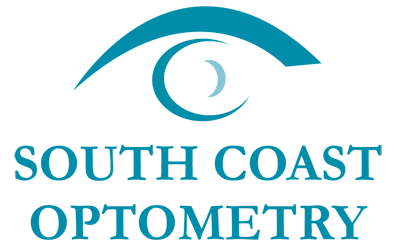 Myopia, commonly known as nearsightedness, is a growing concern worldwide, particularly among children and young adults. Myopia Awareness Week is an excellent opportunity to educate ourselves about this condition and explore effective management options like soft contact lenses and orthokeratology (ortho-k). This blog will delve into various aspects of myopia, from its causes and symptoms to advanced treatment options.
Myopia, commonly known as nearsightedness, is a growing concern worldwide, particularly among children and young adults. Myopia Awareness Week is an excellent opportunity to educate ourselves about this condition and explore effective management options like soft contact lenses and orthokeratology (ortho-k). This blog will delve into various aspects of myopia, from its causes and symptoms to advanced treatment options.
What is the Difference Between Blurry Vision and Myopia?
Blurry vision can result from various eye conditions, but myopia is the difficulty of seeing distant objects. The eye becomes too long, or the cornea becomes too curved, causing light rays to focus in front of the retina instead of on it. While blurry vision can be temporary and caused by eye strain, dryness, or fatigue, myopia is a refractive error that usually requires corrective measures such as glasses, contact lenses, or refractive surgery.
Is Myopia More Genetic or Environmental?
Both genetic and environmental factors influence myopia. Children with one or both myopic parents are more likely to develop myopia themselves. However, environmental factors like prolonged near tasks (reading, screen time) and insufficient time spent outdoors also play significant roles. Studies suggest that a combination of genetic predisposition and lifestyle choices contributes to the rising prevalence of myopia.
Does Myopia or Nearsightedness Cause Blindness?
While myopia does not cause blindness, high myopia (severe nearsightedness) can increase the risk of serious eye conditions leading to vision loss. These include retinal detachment, myopic maculopathy, glaucoma, and cataracts. Early detection and management are crucial to mitigate these risks and maintain healthy vision.
What are the Causes and Symptoms of Myopia in Children?
In children, myopia typically develops due to a combination of genetic predisposition and environmental factors. Symptoms to watch for include:
- Squinting to see distant objects
- Frequent headaches
- Eye strain
- Difficulty seeing the board at school
- Sitting too close to the TV or holding books very close
Parents should ensure regular eye exams for their children to detect and manage myopia early.
Managing Myopia: Soft Contacts and Ortho-K
Soft Contact Lenses
Soft contact lenses are a popular choice for managing myopia, offering several benefits:
- Comfort: Made from flexible materials, they provide a comfortable fit.
- Convenience: Available in daily, bi-weekly, and monthly options.
- Vision Correction: Effective in correcting myopia and providing clear vision without the need for glasses.
Soft contact lenses benefit active children and teenagers who might find glasses inconvenient during sports or other activities.
Orthokeratology (Ortho-K)
Ortho-K involves wearing specially designed gas-permeable contact lenses overnight. These lenses gently reshape the cornea, temporarily correcting myopia so that users can enjoy clear vision during the day without needing glasses or contact lenses.
Benefits of Ortho-K:
- Non-Surgical: Provides an alternative to refractive surgery.
- Daytime Freedom: Eliminates the need for glasses or contacts during waking hours.
- Myopia Control: Studies show that Ortho-K can slow myopia progression in children.
How to Stop My Myopia from Getting Worse?
While it's challenging to stop myopia completely, several strategies can help slow its progression:
- Regular Eye Exams: Ensure early detection and timely intervention.
- Outdoor Activities: Encourage spending time outdoors, as natural light exposure is beneficial.
- Limit Screen Time: Reduce prolonged near tasks and take frequent breaks.
- Consider Myopia Control Options: Explore treatments like Ortho-K and specially designed soft contact lenses.
Myopia Awareness Week is a timely reminder to prioritize eye health and explore effective management options. Whether through soft contact lenses or innovative Ortho-K treatments, managing myopia is essential for maintaining clear vision and preventing potential complications. Schedule an eye exam at South Coast Optometry in Costa Mesa to discuss the best options for you and your family.
